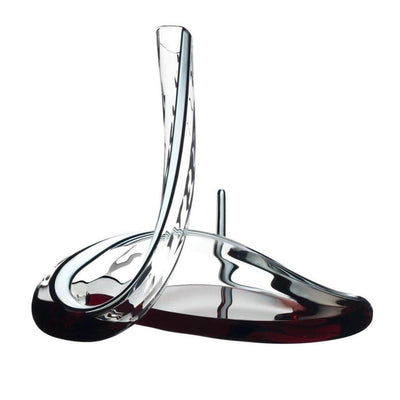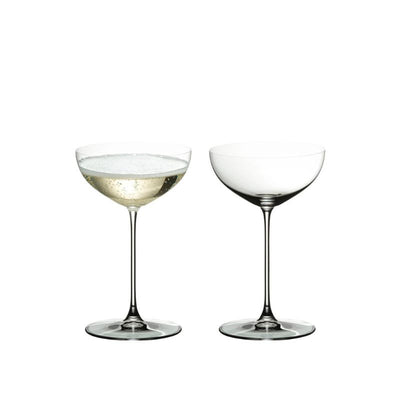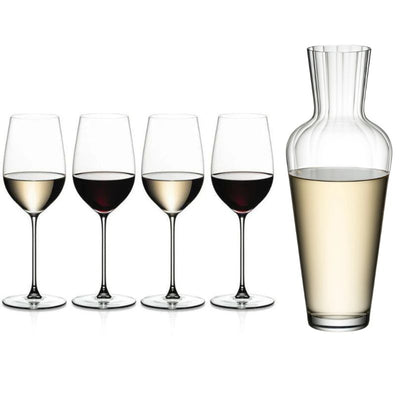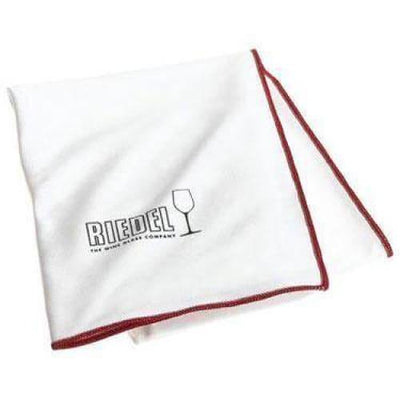VEGAN WINE: The Revolution You're Already Drinking

VEGAN WINE: The Revolution You're Already Drinking
Today, 1st November, is World Vegan Day, kicking off World Vegan Month (the rest of November). It marks the founding of The Vegan Society in 1944 by Yorkshireman Donald Watson and friends, who defined the word 'vegan' ("the beginning and end of vegetarian") and started modern veganism.
Watson said shortly before he died, at the ripe old age of 95, in 2005: "It is not every day a movement is born which, in its general application, could revolutionise mankind."
In This Guide
- The Vegan Revolution is Here
- What is Veganism?
- Vegan Wines: The Puzzle Explained
- So Wine Has Animal Products in it?
- The Vegan Alternative
- Why Everyone's Suddenly Obsessed
- How to Spot Vegan Wines
- Vegan Certification: What to Look For
- Does Vegan Wine Taste Different?
- What's Happening in the Wine World
The Vegan Revolution is Here (But Not How You'd Expect)
Watson's prediction?
Spot on. This year's numbers are mind-blowing. Nearly 5% of the UK population are now vegan - that's 2.5 million people, up from just 150,000 (0.25%) in 2014.
That's not growth, that is a revolution.
Add in vegetarians and pescatarians, and we're talking 8.6 million people - one in six adults - who've ditched meat.
Gen Z are leading the charge with over half set to be meat-free by year's end. If you're in the South East, nearly half your neighbours are either already meat-free or have made the switch this year.
But here's where it gets interesting: whilst veganism is booming, dedicated vegan restaurants are closing down. Beloved spots like Halo Burger, The Glasvegan, and The Vurger Co have all shut their doors.
Why?
Because veganism has become so mainstream that every restaurant, pub, and even McDonald's now offers decent plant-based options. The vegan pioneers have succeeded so completely that they've made themselves partly redundant.
It's the ultimate victim-of-its-own-success story.

And here's the kicker: the real growth isn't coming from committed vegans. It's the flexitarians - the "plant-curious" - driving the market. One in three Brits have either stopped or significantly reduced meat consumption. In 2021, a staggering 63.5% of Brits bought vegan food items.
These people don't need a 100% vegan restaurant; they just want options.
And now, they've got them.
Everywhere.
What is Veganism?
Veganism is a way of living that attempts to exclude all forms of animal exploitation and cruelty, whether for food, clothing or any other purpose. And it's expanding well beyond the dinner plate.
It's becoming a lifestyle, not just a diet. 56% of UK adults now check if their toiletries are cruelty-free and vegan-friendly. The demand for vegan-friendly alcohol has grown so much that major chains like SPAR have made their entire own-label wine range 100% vegan. Even Waterstones saw their vegan book titles explode from 944 in 2018 to over 10,000 by 2021. This is about values becoming integrated into everyday life.
Those of you who are already vegan will be well aware of how vigilant you need to be in all areas of your life, but I want to, specifically, talk about wine (Surprise, surprise!)
Vegan Wines: The Puzzle Explained
You would be forgiven for finding vegan wine a bit puzzling. After all, wine is just fermented grape juice, right? Well, it's the production techniques used in the winery that can turn a vegan-friendly blend into one that vegans would want to avoid.
How Does a Wine Become Non-Vegan?
It all comes down to the fining agents used to clarify the wine. During fermentation, molecules (phenolics, tartrates or tannins) appear in the wine, causing it to be hazy. These are completely harmless, but winemakers know they can't ship cloudy wine. So, they use fining agents to extract these molecules.
Many traditional fining agents contain animal products:
- Gelatine (animal skin and connective tissue)
- Isinglass (fish bladders - yes, really!)
- Albumen (egg whites)
- Casein (milk proteins)
Disturbingly, there are close to 70 ingredients that can legally go into your wine, and none have to be disclosed on the label.
That's a lot of potential fish bladder in your Pinot Grigio!

So Wine Has Animal Products in it?
Once fining is complete, the agents are removed.
However, tiny traces can be absorbed, making it non-vegan.
Since alcoholic beverages aren't subject to the same labelling requirements as other food products, you could be drinking trace amounts of fish bladder without ever knowing it.
Not exactly appetising, is it?
The Vegan Alternative
Vegan wine is either natural wine that hasn't been fined, or it's been fined using natural substances like:
- Bentonite clay
- Activated charcoal
- Silica gel
- Pea gelatine
- Vegetable protein
Natural clarification takes longer - wine needs a couple of years in barrels before it's clear enough to bottle. This can mean it's not as crystal clear, but you could argue this is wine in its truest state.
Some progressive wineries use sterile ceramic or cross-flow filters, bypassing fining agents altogether whilst still achieving beautifully clear wine.
Why Everyone's Suddenly Obsessed
The vegan wine market is booming - with Industry Arc (the world's leading provider of market research reports, data analytics and industry analysis) predicting it to hit $5 billion by 2030.
That's not niche; that's mainstream acceptance.
Here's the thing though: this isn't just about committed vegans. It's those flexitarians - the plant-curious majority - driving the demand for vegan wines. These people want options.
And the wine industry has responded.
🍷 Market Reality: Restaurants have cottoned on that offering vegan wines alongside plant-based menus is just good business. Today's diners, particularly younger ones, want to know where their wine came from, what's in it, and whether it aligns with their values.
The broader organic wine market has hit $12.4 billion annually and is growing by over 10% each year.
How to Spot Vegan Wines on the Shelf
It's hard to know unless the bottle is labelled as vegan.
Major supermarkets like Co-op, M&S, Sainsbury's and Waitrose now label their own-brand wines as vegan friendly, though this doesn't extend to all wines they sell.
Good news: as of December 2023, new EU regulations require wine labels to declare ingredients and nutritional information.
Revolutionary, I know!
The UK wine industry is following suit with similar transparency initiatives.
Look for wines labelled as unfiltered or unfined: non-filtre (French), sin-filtrar (Spanish), or non-filtrato (Italian).
Vegan Certification: What to Look For

BeVeg - the gold standard. The only ISO 17065 accredited vegan certification for alcohol worldwide.

The Vegan Society (UK) - one of the most respected marks, common on UK and European wines.

VeganOK (Italy) - operates to European standards and verifies the entire production chain.

European Vegetarian Union - umbrella organisation for vegan and vegetarian societies in Europe.
Getting certified isn't cheap or quick, so many qualifying wines don't have the logo.
This is where Barnivore.com becomes your best friend. It's a free directory where you can search for specific wines to check if they're vegan. More retailers are also adding "vegan-friendly" shelf tags.
⚠️ A Word of Warning: Natural wine is vegan, but organic and biodynamic wines aren't always vegan friendly. These terms refer to how grapes are grown, not processed. Some biodynamic practices involve preparations made with herbs and bones - definitely not vegan!
Does Vegan Wine Taste Different?
Of course not! You've probably drunk loads of vegan wine without realising. Most people will agree that wine without bits of animal skin and connective tissue sounds much more appealing!
As one vegan certification attorney puts it: "It just tastes better when you know the ingredients are pure, healthy, and vegan. I mean, who wants to drink trace amounts of fish bladder or charred bone?"
What's Happening in the Wine World Right Now
Sustainability isn't optional
Climate change is forcing winemakers to adopt regenerative farming practices. And guess what pairs beautifully with that? Vegan fining agents and minimal intervention winemaking.
Transparency is everything
Today's wine drinkers want the whole story. This matters more than ever as social media disinformation about "ultra-processed" plant-based products has created hesitation among some consumers. Wineries being upfront about their vegan-friendly, minimal intervention approach are cutting through the noise.
Natural wine has gone mainstream
No longer just for wine nerds, natural wine naturally aligns with vegan principles and appeals to anyone wanting something authentic and unprocessed.
Quality over quantity
Younger drinkers are drinking less but spending more on wines that align with their values. The premium (often vegan, often sustainable) section is growing whilst the cheap plonk market shrinks.
Your Vegan Wine Adventure
There's never been a better time to be a vegan wine lover. Whether you're a Sauvignon Blanc devotee or someone who believes any excuse is a good excuse for bubbles, there's a vegan option for you.
Look for wines labelled vegan, unfined, or naturally clarified. Check for certification marks. Bookmark Barnivore. Don't be shy about asking your wine merchant or sommelier - most are excited to talk about it.
The best bit?
You're not compromising on anything. You're simply ensuring your wine is made without unnecessary animal products, which often results in a more natural, honest wine that lets the grapes and terroir shine through.
Celebrating World Vegan Month
Over the course of my research I've come across delicious sounding vegan cocktails. So I'll test drive them and share my favourites over World Vegan Month.
If we're celebrating veganism properly, we might as well do it with a fancy drink in hand.
Whether you've been vegan since before it was cool or you're one of the millions who've made the switch this year, raising a glass of vegan wine feels like the perfect way to mark the occasion.
Donald Watson said veganism could revolutionise mankind. Looking at how the wine industry has transformed - with more transparency, ethical practices, and yes, significantly less fish bladder - I'd say he was absolutely right.
The movement has succeeded so profoundly that it's been absorbed into the mainstream. Vegan options are now everywhere, which is both the triumph and the challenge. The pioneers have won, even if some of their restaurants haven't survived the victory.
But for those of us who care about what goes into our glass, the choice has never been better or more accessible.
I like to imagine Donald Watson at a dinner party in 2025. He'd have a glass of alcohol-free vegan wine in hand - he was teetotal - patiently listening to someone complain about how their favourite vegan restaurant just closed down.
"But surely," he'd say, in that gentle, reasonable way he had, "that means we've won?"
"Won? It just closed!"
"Yes, but why did it close? Because every other restaurant now caters to us. Because you don't need a special vegan restaurant anymore. You can go anywhere."
He'd take a sip of his wine, probably quite pleased with himself.
"I did say veganism would revolutionise mankind. I just didn't mention that successful revolutions end up making themselves obsolete."
"But, that's rather the point."
Wise man, that Donald Watson.
Here's to a revolution so successful, we barely notice it anymore. 🍷
Statistics from IWSR Global Wine Trends 2024, Toast's Restaurant Trends Report, Grand View Research, Finder UK diet trends survey 2024-2025, The Grocer, Mintel, Appinio, Opinion Matters.
No fish bladders were consumed in the writing of this article.























Leave a comment